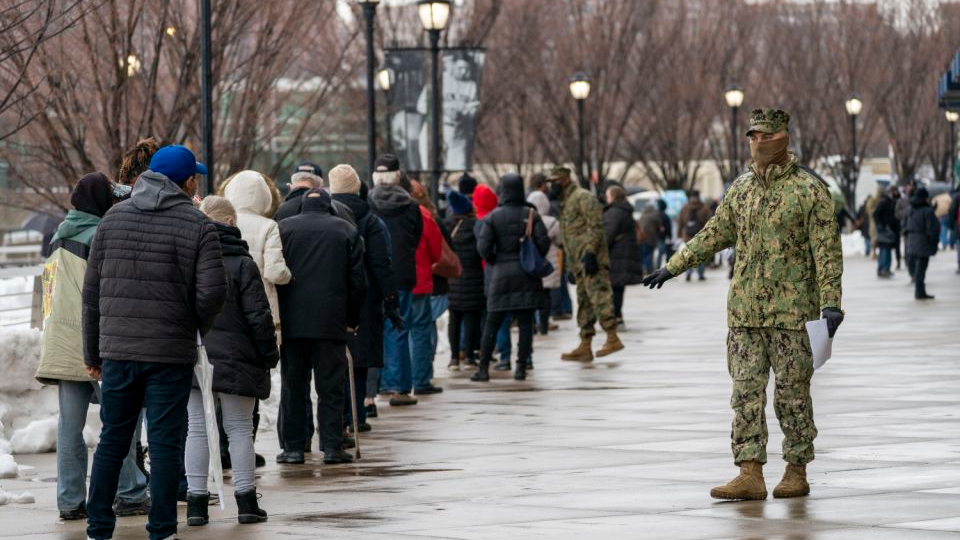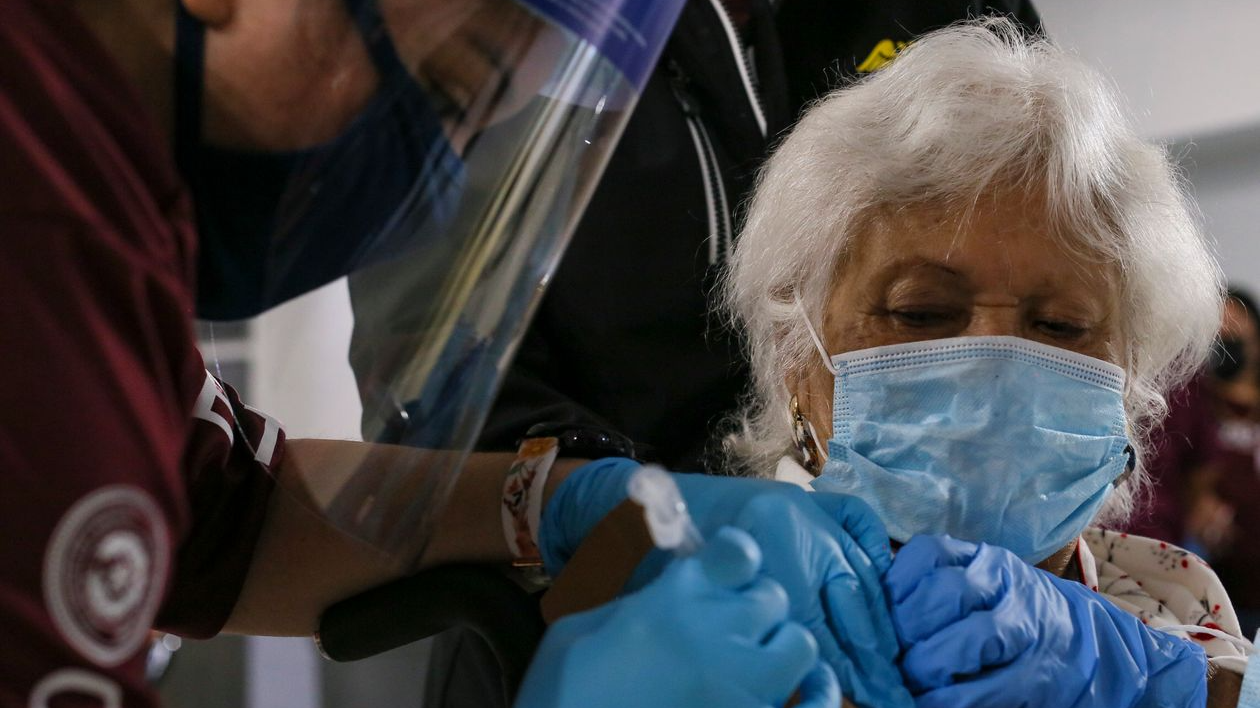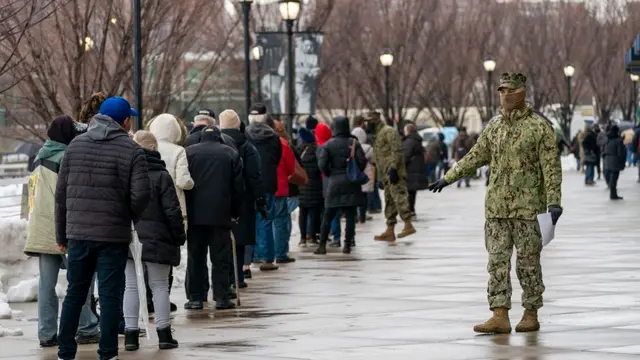
A member of U.S. National Guard gives people direction standing in line at a COVID-19 vaccination site at Yankee Stadium in the Bronx borough of New York City, U.S., February 5, 2021. /AP
Editor's note: Bradley Blankenship is a Prague-based American journalist, political analyst, and freelance reporter. The article reflects the author's opinions and not necessarily the views of CGTN.
As the United States continues its vaccination drive, one crucial problem is looming on the horizon: vaccine supply is likely to tip over demand in the coming weeks. On April 20, the Kaiser Family Foundation published a report on the matter predicting "the U.S. as a whole we will likely reach a tipping point on vaccine enthusiasm in the next two to four weeks."
"Once this happens, efforts to encourage vaccination will become much harder, presenting a challenge to reaching the levels of herd immunity that are expected to be needed," the report said.
But it's clear that this is already happening in some parts of the country. I actually arrived in the United States last week to my home state of Kentucky to spend some time this spring. Within a day, I was able to get my first dose of a COVID-19 vaccine, and I am already scheduled for my second. It speaks to the widening availability of vaccines in the country – and also the fact that demand is waning.
Speaking to some friends volunteering at another local vaccination site, they told me that appointments are regularly going unfilled. There are several factors as to why this might be.
First of all, there seems to be a lack of urgency among younger people – who have just become eligible nationwide – to get the vaccine. Many younger and otherwise healthy people I've talked to are dragging their feet on registering since they believe COVID-19 poses no serious risk to their health. Health officials across the country have been sounding the alarm to the news media about this.
Second, and more importantly, there is a partisan gap on vaccination that's been fomenting for some time. A recent Quinnipiac poll showed that up to 45 percent of Republicans "don't plan" to take a COVID-19 vaccine, and another one from Monmouth University found that 43 percent of Republicans (compared to five percent of Democrats) would never get the vaccine.

A woman gets a COVID-19 vaccine in Harlingen, Texas, U.S. /AP
It's not surprising that it's become such a hot issue since the party is already deeply anti-intellectual, and its top pundits, like Fox News' Tucker Carlson, are peddling anti-vaxxer conspiracy theories almost daily.
The nation's top infectious disease expert, Doctor Anthony Fauci, recently pointed out this hypocrisy on CNN.
According to Fauci, "The fact that one may not want to get vaccinated, in this case a disturbingly large proportion of Republicans, only actually works against where they want to be," and this is exactly right because this same group has been against COVID-19 restrictions since day one, and getting vaccinated would help end those restrictions.
This is exactly what the famous Slovenian philosopher Slavoj Zizek might jokingly call "pure ideology," e.g., Republican partisans are so ideologically anti-intellectual that they'd actually risk the U.S. never being able to achieve herd immunity against COVID-19, something they've even been talking about since day one, as some kind of political genuflection.
The U.S. is going to be facing a serious dilemma over this. Vaccine hesitancy will prolong the country's battle with the coronavirus if it isn't reigned in, which is cause for concern as new variants are likely to emerge all the time. Not only this, but it also has international implications since the U.S. has been hoarding vaccines to inoculate its own population first.
What will happen to America's vaccine supply if Americans are refusing to take them? Will the administration of President Joe Biden finally lift restrictions and allow doses to be shipped overseas?
After all, that would make sense. It would be better for them to be used somewhere else, as the world is still in the grips of a pandemic, rather than sit around unused as Americans bicker over whether or not to trust science. If they refuse to use their own supply, the Biden administration should allow distributors to ship them overseas to help bring an end to the pandemic.
(If you want to contribute and have specific expertise, please contact us at [email protected].)
 简体中文
简体中文

